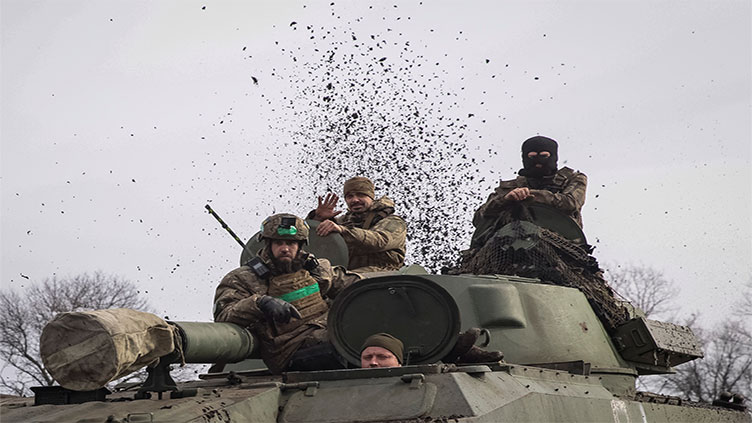Ukraine clings to Bakhmut but time may be running out as Russians advance

World
Ukrainian forces hung onto their positions in the ruined eastern city of Bakhmut.
KYIV (Reuters) - Ukrainian forces hung onto their positions in the ruined eastern city of Bakhmut early on Thursday under constant attack from Russian troops amid signs time might be running out.
Russia says seizing Bakhmut would open the way to fully controlling the rest of the strategic Donbas industrial region bordering Russia, one of the main objectives of its invasion a year ago on Feb. 24.
Ukraine says Bakhmut has limited strategic value but has nevertheless put up fierce resistance. Not everyone in Ukraine is convinced that defending Bakhmut can go on indefinitely.
"I would not go as far as to say the situation is critical, but it is threatening," Ukrainian member of parliament Serhiy Rakhmanin said on Ukrainian NV radio on Wednesday night.
"From my standpoint, it is not logical to defend Bakhmut at any cost," Rakhmanin said. "But for the moment, Bakhmut will be defended with several aims - firstly, to inflict as many Russian losses as possible and make Russia use its ammunition and resources."
No lines of defence should be allowed to collapse, Rakhmanin said, and "there are two ways to approach this - an organised retreat or simple flight. And we cannot allow flight to take place under any circumstances."
'UNDER CONTROL'
A statement on Wednesday night by the General Staff of the Ukrainian Armed Forces said the Russians were attempting to advance on Bakhmut "without interruption" and President Volodymyr Zelenskiy said his forces "are keeping each sector of the front under control."
Russian forces were making preparations for new attacks in central Zaporizhzhia region and on the southern front in Kherson region, the military statement said. More than 40 towns and villages were shelled, it said, including the regional centre of Kherson and other towns on the west bank of the Dnipro River, abandoned by Russian forces in November.
Reuters was unable to immediately verify the latest battlefield accounts.
Thousands of civilians remain inside the ruined city of Bakhmut from a pre-war population of around 70,000.
FOREIGN MINISTERS CONFERENCE
The war took centre stage on the eve of a G20 foreign ministers' meeting in New Delhi with the EU foreign policy chief saying its success would be measured by what it could do to help end the conflict.
Ukrainians and Russians traditionally mark March 1 as the start of spring. Already, frozen ground has melted at the front, ushering in the season of sucking black mud - "bezdorizhzhia" in Ukrainian, "rasputitsa" in Russian - that has been notorious in military history for destroying attacking armies.
"Winter is over. It was a very difficult one and every Ukrainian, without exaggeration, felt the difficulties," Zelenskiy said in his nightly video message, delivered after a meeting devoted to energy issues.
"But we managed to provide Ukraine with energy and heat. The threat to the energy system remains. And work goes on to ensure the energy system keeps functioning," Zelenskiy said.
Russia mounted regular waves of missile strikes on power stations in what Ukraine said was a calculated strategy to destroy the morale of civilians.
Ukraine and its Western allies describe Russia's war as unprovoked with the aim of crushing its European-leaning neighbour, which like Russia was part of the Moscow-dominated Soviet Union until its 1991 break-up. Russia accuses the West of provoking what it calls its "special military operation" to eliminate security threats, and of prolonging the conflict by backing the Kyiv government with weapons.

